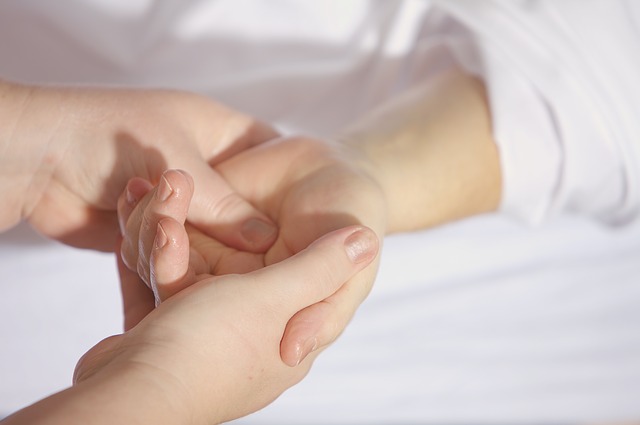
01 Apr Mind and Skin Connection: How Your Mental State Affects Your Skin
Experts believe that stress, anxiety, and other psychological conditions might be an underlying cause for common skin issues including acne, rosacea, psoriasis, etc. There is a connection between the skin and the central nervous system, which means any changes in the nervous system that alters the skin condition should not surprise you.
A person’s age can be predicted by the state of their skin; so that means having dull, wrinkled skin makes you look much older than you really are. It depends on how people treat their rough damaged skin, if they go for natural home remedies or prefer skin treatments such as Hifu or Prp.
But did you ever think that there might be a connection between your mind and your skin? Maybe your inappropriate mental health is damaging your skin? Yes! That’s the point where we’ll lead you.
Stress always leaves a mark. Bodies which are under stress produce more skin sebum, which leads to oily discharge that results in clogged pores and exaggerated acne. Stress also increases the inflammation inbody, which can aggravate eczema, a chronic inflammatory skin condition. Stress also has the ability to trigger cold sores caused by the herpes simplex virus.
When a person is free from worry and stress, the hormone levels in the body remain relatively balanced. But when you comes into contact with the situations which are psychologically and physically stressful, then the body’s “flight or fight” response is accelerated. The stress signals are sent to the adrenal glands by the sympathetic nervous system, to flood the system with adrenaline and cortisol, both of which are major stress hormones.
Our skin works as a protective wrapper that protects us against injury and environmental factors like weather and air pollution, and is also involved in a number of biological processes which are simply mind-blowing.
Various sweat glands, blood vessels, and nerve endings are present in our skin, which are controlled by our immune and nervous systems, and these in turn are easily affected by our mental health. The organism has three primary layers: the ectoderm, endoderm, and mesoderm. One of the layers transforms in the mind and the skin. In simple words, the ectoderm develops into the skin and the nervous system (including the brain). That’s why there is always a visible effect on your skin condition that is directly related to your mind and how you feel overall.
Acne
The cause of acne is inflammation. Stress and anxiety leads to chronic inflammation in the body, which results in cortisol imbalance. This boosts the sebaceous glands to produce thick and sticky oil, to which dead skin sticks to and blocks the pores. It further promotes bad bacteria growth, which is the perfect environment for breakouts.
Rosacea, eczema, and psoriasis
Cortisol inhibits the skin from producing hyaluronic acid, which is your body’s natural moisturiser, and in addition to inflammation it further causes conditions like rosacea, eczema, and psoriasis, all of which result in flaky and itchy skin.
Premature aging
Cortisol is a hormone that has the ability to quicken the skin’s ageing process, which results in increased wrinkles and pigmentation and decreasing glow and firmness. When cortisol is high, there is a drop in the DHEA production, which is an anti-aging hormone. Expensive skincare products won’t help and fix your skin if you’re stressed or upset.
Mental state affects the skin in three ways
1. Biologically
There is an intrinsic connection between your mind and skin, and that’s how they influence each other. This varies from hormones of inflammatory stress, to chemicals which are released by the nervous system in reply to stress, which is directly affecting your skin’s condition.
There are various other lifestyle factors, such as anxiety and lack of sleep, which can lead to altered health of the skin. The best way to control this connection is to know how to manage the triggers that result in it. For instance, if job stress usually leads to breakouts, then you should practice different ways to cope with the stress such as yoga or meditation.
2. Perception
It’s a fact that whenever people are going through any skin issues, they tend to see themselves more critically and through negative filter. That ultimately leads to a reduction in confidence.
Any skin conditions like acne, etc., can result in immense social deprivation and an alteration in your self-esteem. It’s important to be aware of this on a logical level and continue working to remind oneself that it’s just for a short time and can help manage the emotional response.
3. Behaviorally
Your insight of your complexion can pave ways to unhealthy behaviours, especially when you are facing decreased confidence levels. When people are concerned or unsatisfied with their skin, it definitely affects their actions in regard of how they take care for it. Mostly anxiety leads people to over-exaggerate or intensify a condition, which is obviously not needed, whereas depression leads to neglecting the serious issues that need to be handled. Many people in times of emotional distress have developed pimples, which only made them feel worse.
What can you do in case of anxiety or depression that is stressing out your skin?
The major key is to relax. Relaxation is something which isn’t so simple, but there are various methods for relaxation out there, you just need to find the one that works for you.
Simple CBT (Cognitive behavioral therapy) techniques and keeping a watch over thought patterns are always helpful in the reduction of stress and anxiety. Evidence has proved that treatments regarding mental health, such as CBT and meditation, might help in healing skin conditions, too.
Author Bio
Saima Sharif is a freelancer content writer. My major interest is writing content on topics such as hair fall, hair solution, home remedies for hair problems, or any treatment related to this. My current adventure is my hair clinic Revivo Hair (Pakistan, Oslo and London).
